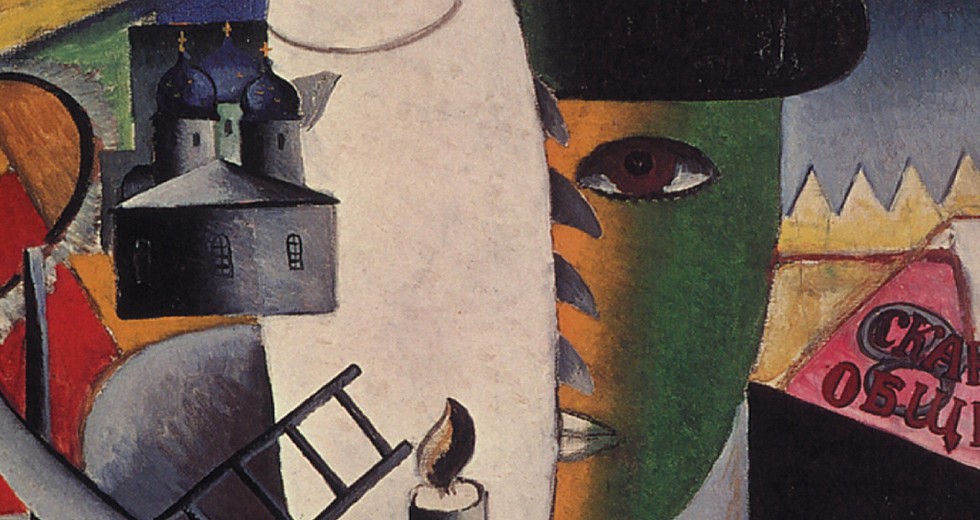
Was Alexander Scriabin a genius or a madman? The answers are “yes” and “both.” As cultural traditions and conventions were breaking apart in the early 1900s, Scriabin stood over the process with a sledgehammer, forging one of music’s most iconoclastic voices out of the broken pieces. The aesthetic outpost he established is on the far borders of cultural civilization, and at the same time, entirely natural; his mature works are bizarre and shocking, even today, and yet humane and deeply personal.
His Symphony No. 3, The Divine Poem, from 1904, begs the interesting question: when is program music so extreme it sounds abstract? Richard Strauss, at this point, had been writing tone poems for two decades, grappling with issues of transcendence in his own way: Death and Transfiguration and Also sprach Zarathustra, for example. His narratives are easier to follow, though. As Strauss himself said, “I can translate anything into sound. I can make you understand by music that I pick up my fork and spoon from this side of my plate and lay them down on the other side.” The aforementioned “transfiguration” depicts with utter clarity what we imagine post-mortem exaltation to be like, as representative as the thunderclouds in Beethoven’s Pastoral Symphony.
Under Riccardo Muti, the CSO performs Scriabin’s The Divine Poem on Jan. 27 at Symphony Center and on tour Jan. 30 at Carnegie Hall.
Scriabin worked with ether as his building material, diving deep into his theosophist vision of the afterworld. The bridges between this world and the next are not as straightly conceived as they are in Strauss’ works. Scriabin’s modest goal for The Divine Poem, according to his own program notes, was to depict the evolution of the human soul and its ultimate union with the cosmos. Heady stuff.
Whether he achieved his goal remains up for discussion. Author and Nobel laureate Romain Rolland rejected the programmatic aspects categorically: “Scriabin is the real composer of Absolute Music (as opposed to Programme Music) and a Classicist at heart.” Rolland and others saw danger in an attempt to read Scriabin’s music as an expression of theosophy, or to read Scriabin’s theosophy as perfectly expressed in his music.
Rolland’s assertion was that the music wasn’t meant to tell a story to a listener, that the composer wished to make the listener the hero of his own story. In other words, ignore the mystical, fuzzy language in the score. Listening for a story will distance a listener from the music, which — according to the composer’s aspirations — would have esoteric power enough to transform a listener on its own. As musicologist Yevgeny Sudbin says, “Scriabin was the first actually to invoke mysticism rather than portray it.”
(Then again, maybe the only reason the work doesn’t sound programmatic to some is because they haven’t ventured as far inward as Scriabin had. Who knows? Maybe the merging of our egos with the infinite cosmos happens to the sound of an augmented ninth.)
Regardless of how we hear the work — since we have the luxury of more than a century of compositional innovation through which we can filter it — Scriabin’s intent is specific, and it enriches the listening experience to be aware of what he sought to accomplish. To ignore the program, as Rolland did, simply doesn’t take Scriabin at his word. The Divine Poem is his first major orchestral work with extramusical content, probably for a reason.
For Scriabin, at this juncture in his development, music was a tool by which the listener/participant was freed from the constraints of visible, ordinary life: it is meant to be a limnal experience that would break the listener from routine perception. In his time, Russia was enjoying a period of religious enfranchisement, theosophy had found its way into the common parlance of the avant-garde, and there was a hunger for new ways of experiencing the divine. Scriabin obliged.
The “struggle” alluded to in Luttes, the title of the first movement of The Divine Poem, is humanity’s struggle against what Scriabin saw as an outdated understanding of God. For Scriabin, humanity was bound by ignorance of its own divine nature. This symphony, the last he labeled as such, was an attempt to break that ignorance and introduce the listener to his or her true identity. “I am God,” he once said, with room for the idea that everyone else was, too. (Hello, Nietzsche.)
Not that he didn’t have his own messianic thoughts. He once tried to walk on the water of Lake Geneva. He preached to fishermen. He was born on Christmas Day. So he came by it naturally. Again, here was a musical genius with more than slight touch of madness.
Peter Lefevre, based in California, writes about music for the Orange County Register and Opera News.